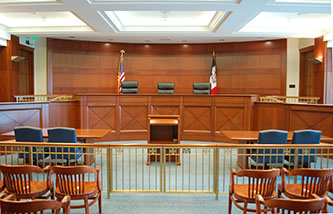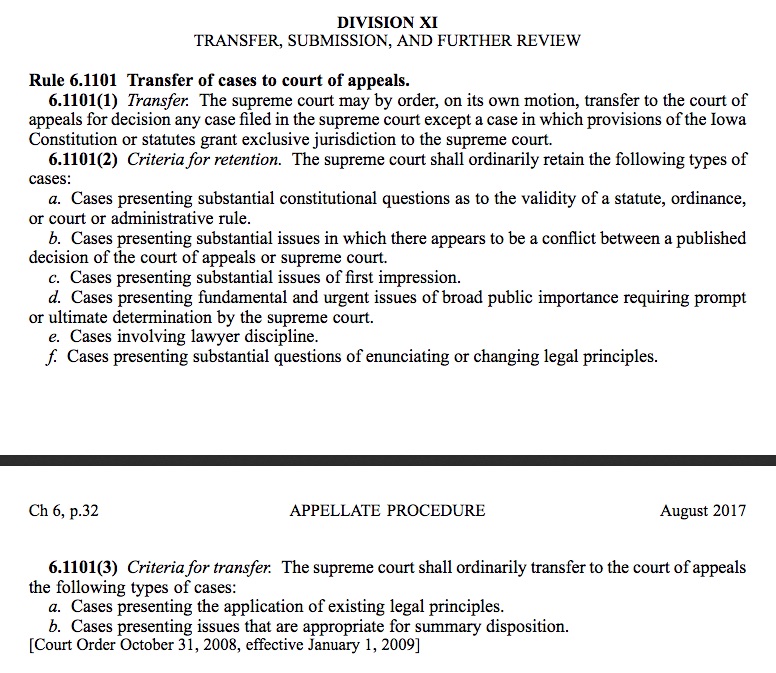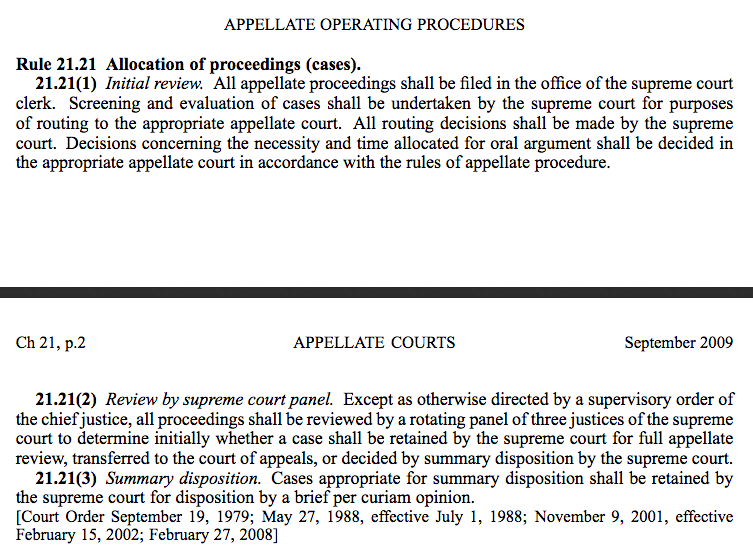Four Iowa Supreme Court justices ruled on September 26 that the Iowa Court of Appeals should hear a challenge to a new law changing judicial selection and shortening the term of chief justice.
Justice Thomas Waterman signed the order transferring the case, noting that Chief Justice Mark Cady had recused himself and that Justices Brent Appel and David Wiggins dissented and would have retained the case to be heard in the highest court.
Waterman foreshadowed today’s action in previous orders declining to recuse himself from the case, despite evidence in the public record that he communicated with Republican policy-makers about the bill.
Justices Susan Christensen, Edward Mansfield, and Christopher McDonald joined the decision to transfer the case to the appeals court. Like Waterman, all three opted not to recuse themselves without revealing whether they discussed the law being challenged with any state legislators or staff for Governor Kim Reynolds.
Attorneys representing the plaintiffs as well as the state and named defendants had asked for the Supreme Court to retain the case. But Iowa court rules cited in Waterman’s order allow the justices to direct cases “to the appropriate appellate court” and to transfer to the Court of Appeals any case “except a case in which provisions of the Iowa Constitution or statutes grant exclusive jurisdiction” to the Supreme Court.
The same rule states that the Supreme Court “shall ordinarily retain” cases “presenting substantial constitutional questions as to the validity of a statute […].” The plaintiffs appealing a lower court’s dismissal of their case assert that the new law is unconstitutional for three reasons, two related to the legislative process and one related to the separation of powers.
Perhaps the Supreme Court conservatives transferred the case to avoid raising questions about their impartiality. The law in question would allow them to elect a new chief justice in 2021, and Waterman is said to have told acquaintances he has four votes for the job, Michael Gartner reported in Des Moines Cityview in June.
A better way to avoid such questions would be to follow Rule 51:2.11 of the Iowa Code of Judicial Conduct and disclose all communications relevant to the plaintiffs’ motion for recusal by any justice who consulted or advocated with policy-makers to encourage passage of Senate File 638.
Nine judges serve on the Court of Appeals; one appointed by Governor Tom Vilsack, three by Governor Chet Culver, two by Governor Terry Branstad, and three by current Governor Reynolds. Most of the time, a three-judge panel resolves cases.
UPDATE: The Court of Appeals may not reach the underlying constitutional questions in this case. Judges could uphold the District Court ruling, which found the attorneys, state legislators, and members of the State Judicial Nominating Commission lacked standing to challenge the law. Or, they could reverse the dismissal and send the case back to District Court for consideration of the constitutional claims on the merits.
Full text of Justice Thomas Waterman’s order transferring this lawsuit to the Iowa Court of Appeals:
This matter comes before the full court, Cady, C.J., taking no part, for purposes of determining whether this matter should be retained by the supreme court or transferred to the court of appeals. See Iowa R. App. P. 6.1101 and Iowa Ct. R. 21.21. The court orders this case be transferred to the court of appeals for decision. Wiggins and Appel, JJ, dissent and would retain the case.



